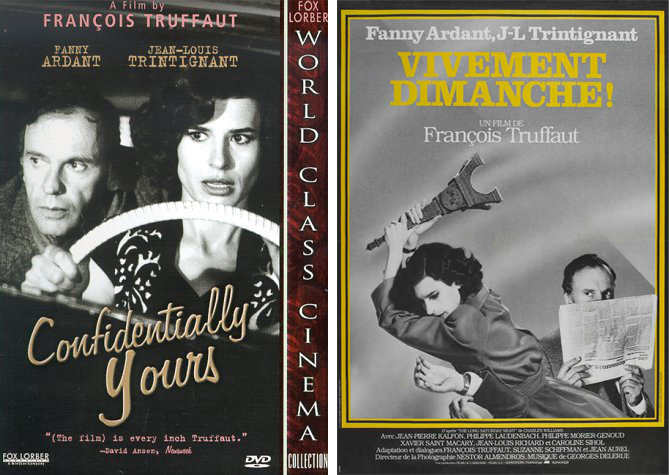
Julien Vercel (Jean-Louis Trintignant) is a real-estate agent in a pleasant Provençal town. When he’s accused of murdering his wife’s lover, and then his wife, his secretary Barbara (Ardant) turns sleuth to clear his name as murders continue to pile up.
Confidentially Yours has everything a mystery fan could want, starting with a satisfying plot. I hadn’t seen the film for years, but I recently watched it twice within twenty-four hours. So much time had passed since my last viewing that I came to the plot as if for the first time, puzzled when I was supposed to be puzzled and duly surprised by the resolution. But the second time I concentrated on the artistry. The trail from clue to clue is marvelously logical, the clues themselves are inscrutable and witty, and the clue that completes the puzzle is a masterful touch.
Truffaut was highly influential both as a director and as a film critic. It was he who applied to film-making the notion of the auteur. He argued that just as the work of a Shakespeare or Dickens is instantly recognizable because of a consistent style and recurring themes, so too is the work of a great director.
Truffaut himself was an auteur, exploring the same themes in film after film. One such theme is art, and the parallel reality that art creates—as in cinema. Truffaut’s fascination with cinema dates to his childhood, when films offered an escape from a sad life as a son born out of wedlock to a mother who left his upbringing to others. His film Day for Night is all about the making of a film, with Truffaut himself playing the director. A movie theater figures prominently in Confidentially Yours,with many scenes taking place around the ticket-seller’s booth, and with the ticket-seller herself as a key figure in the mystery.
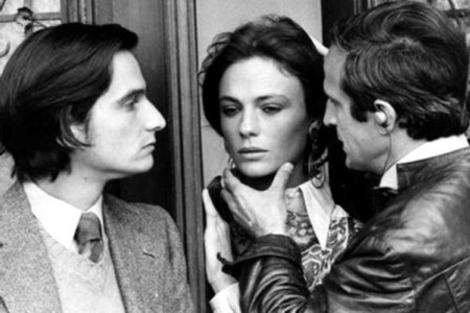
A related theme is that of the camera as the recorder of experience—or does the presence of a camera turn reality into art? In Confidentially Yours, Barbara’s ex-husband is a photographer for the local newspaper, Le Provençal, showing up at inopportune moments in his quest to document the current big story, the murders and Julien Vercel’s apparent guilt. It is almost as if Confidentially Yours is a reworking of Day for Night, as the participants in the drama (or are they actors?) are shadowed by a photographer who records their every move. The ex-husband photographer is present to document the final scene, whose details I can’t divulge lest I give the plot away, but our final vision is his dropped lens cap bouncing here and there as children playfully kick it.
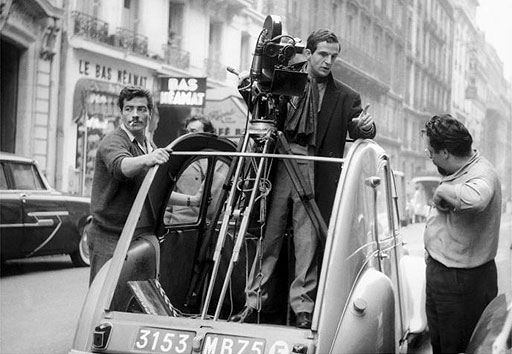
The beleaguered director of The Hunchback of Notre Dame is less than glamorous—short and skinny, with a bald spot and thinning hair that droops to his shoulders. But his role as the shaper of a fiction meant to be taken as truth evokes Truffaut’s role as director in Day for Night.
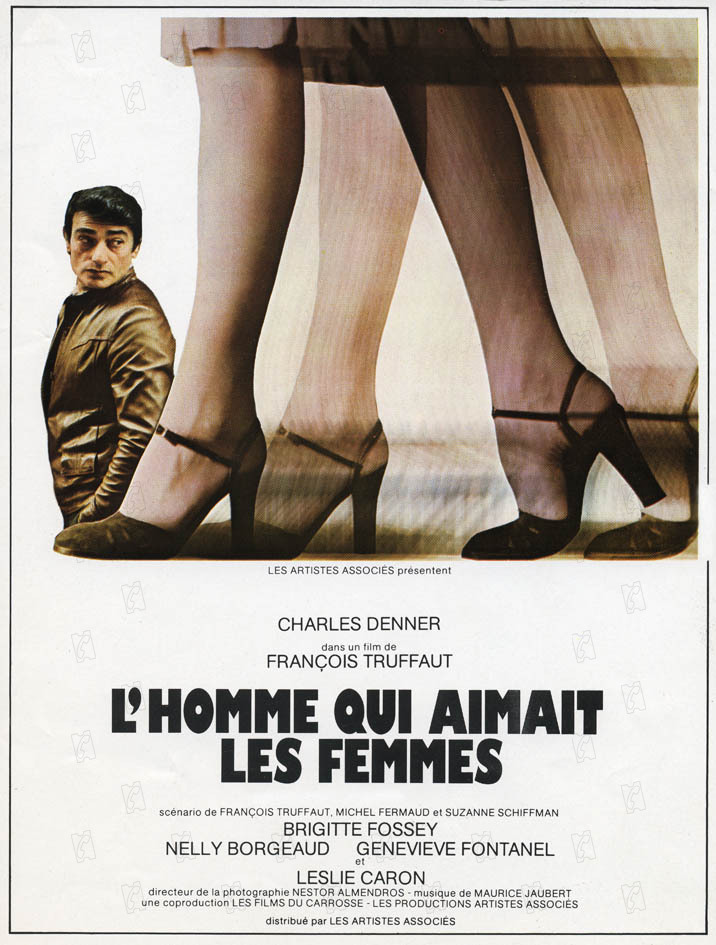
Recent events have given rise to much discussion about the French attitude toward sex. Nobody—at least on our side of the Atlantic—is arguing that Dominique Strauss-Kahn’s forcing himself on a hotel maid is excused by the French tolerance for extramarital affairs. But it’s pretty clear that when a Frenchman feels the stirrings of passion, monogamy is easily set aside—and that the pursuit of women is not only tolerated but celebrated. Truffaut himself loved women, as his own romantic history shows. He had affairs with nearly all his leading ladies and fathered a child out of wedlock with Fanny Ardant. The autobiographical Antoine Doinel trilogy chronicles Truffaut’s own amorous adventures, beginning with a teenage visit to a prostitute.
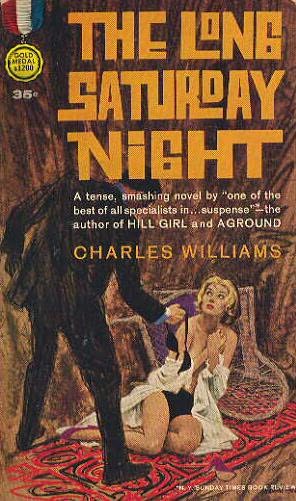
Truffaut may have based his plot on Williams’ book, and Confidentially Yours makes glorious tongue-in-cheek reference to the tropes of pulp fiction as filtered through the lens of noir films. But, despite his own womanizing, Truffaut’s vision of women is anything but demeaning.
Barbara applies herself to clearing Julien’s name in fine amateur-sleuth fashion, tracking down clues whose significance is telegraphed to us by her expressive eyes. Her quest leads her to Nice, where she cleverly abandons Julien’s car at the airport, thus leading the police to believe he has fled, to Marseilles—via a bus that pulls up through the rain in a scene that evokes any number of noir films, and into the dangerous world of a sleazy nightclub owner.
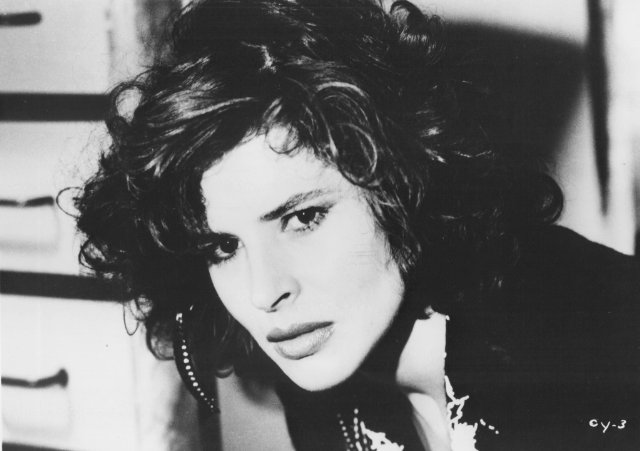
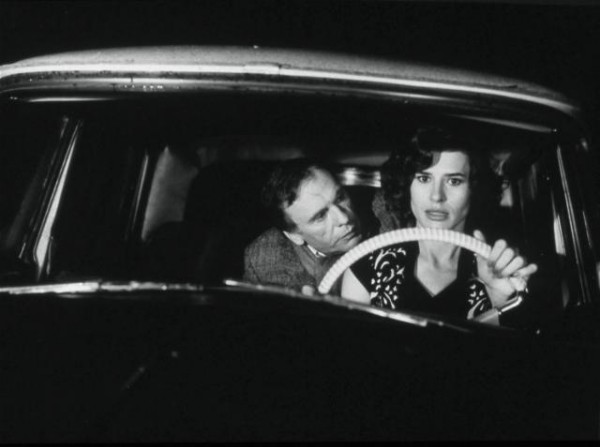
Peggy Ehrhart is the author of the Maxx Maxwell mysteries, featuring blues-singer sleuth Elizabeth “Maxx” Maxwell. The first Maxx Maxwell mystery, Sweet Man Is Gone, is now available on Kindle and in other ebook formats.

If I had seen this movie in the video store (when there were video stores) I would have written it off as an artsy foreign film. This post warns me not to be so hasty. Confidentially Yours seems to have a lot more to offer.
While Truffaut is a name that frequently gets thrown around amongst film buffs, I have yet to check out these flicks…
The image of Barbara embarking on her adventure in full medieval garb is both hilarious and a great allusion. I must see this for myself!
Besides, how could anyone resist attraction to a strong and witty heroine. Who ever said ‘Gentlemen Prefer Blondes’ was definitely misinformed.
I haven’t seen a Truffaut film since Day for Night in the early 70’s, probably for 25 cents on a Saturday night at the U of Illlinois. Nostalgia! This posting makes me want to go find Confidentially Yours.
“Confidentially Yours was based on an American crime novel, The Long Saturday Night. It was written by [b]Charles Williams[/b] in 1962 and published by Gold Medal Books, a leading purveyor of pulp fiction.”
This is incorrect. Gold Medal BOOKS were a leading purveyor of mystery fiction. Pulp has nothing to do with it. Pulps were magazines, heyday from the 1930s-40s, cost about a dime, printed on cheap “pulp” paper, pretty killed by paperback books. Pulps had every genre you’re used to: mystery, adventure, war, Western, romance, science fiction, horror. Pulp cannot be constrained to crime/mystery.